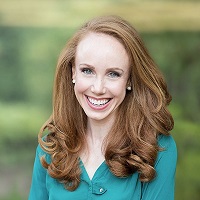Jennifer Harris
Jennifer M. Harris serves as Director of the Economy and Society Initiative at the William and Flora Hewlett Foundation, which seeks to replace neoliberalism with a new “common sense” about how the economy works and the aims it should serve. Jennifer helped launch the initiative and served as director from 2020 to 2021; she returned to lead the program in 2023.
From 2021 to 2023, Jennifer served as Special Assistant to the President and Senior Director, International Economics on the National Security Council and National Economic Council, where she worked on a host of initiatives and policies,and was a key contributor to the new approach to political economy. After leaving the administration, Jennifer helped stand up BuildUS, a collaborative philanthropic effort to help workers and communities take full advantage of the opportunities made available in new federal legislation, ensuring that the clean energy transition is made real and benefits everyone.
Jennifer has held senior fellowships with the Brookings Institution, the Roosevelt Institute, and at the Council on Foreign Relations (CFR), writing and speaking on international economic issues, U.S. foreign policy, and climate and energy policy. Prior to CFR, she served as a member of Secretary Hillary Clinton’s policy planning staff at the U.S. Department of State. In that role, she was lead architect of Secretary Clinton’s economic statecraft agenda, which launched in 2011.
Jennifer began her career serving on the U.S. National Intelligence Council staff, covering a range of economic and financial issues. Her work has appeared in The New York Times, the Financial Times, Foreign Affairs, The Washington Post, Politico, Bloomberg, and CNN, among other outlets. A Truman and Rhodes scholar, she holds bachelor’s degrees in economics and international relations from Wake Forest University, a master’s degree in philosophy from the University of Oxford, and a law degree from Yale Law School. With Robert Blackwill, she is the co-author of War by Other Means (Harvard/Belknap 2016).

